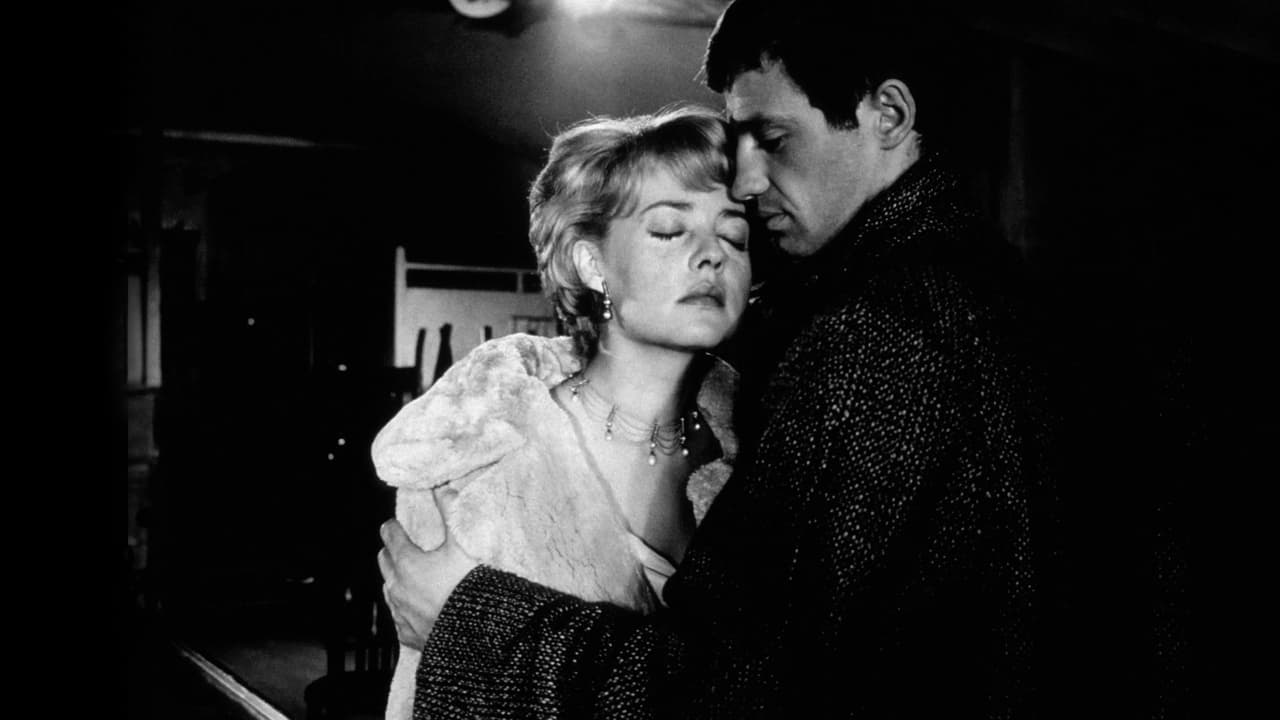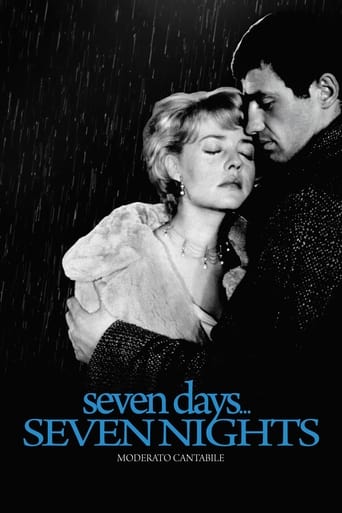

Very well executed
... View MoreFantastic!
... View MoreBest movie of this year hands down!
... View MoreThis movie tries so hard to be funny, yet it falls flat every time. Just another example of recycled ideas repackaged with women in an attempt to appeal to a certain audience.
... View MoreAlmost surreal in its emptiness, boredom, and the incomprehensible melodrama of the main character. I think her motivation is explained by her being in a constant state of boredom and despair, who is briefly given a futile energy when she eroticises the death of a stranger at the hands of a lover and finds a man willing to, briefly, play along with her fascination and give her a slight thrill in a flirtatious acquaintance based on discussing the case. But nothing really happens. At all. Then he says he's leaving, she screams in despair, and then it ends. Was she disappointed she didn't arouse enough passion in him for him to murder her? It's basically a bored wife in a passionless marriage having an extremely brief and relatively mild breakdown that leads to nothing. I had a hard time empathising with her, which unfortunately might be the key to really getting the most out of this film. The mother/child relationship is touchingly portrayed though.There's also an atmosphere of unsettling hostility in the village that I just don't understand the purpose of, but I've noticed that in french films before so maybe it's just how life is over there in a provincial town. It's beautifully made and there's some lovely cinema-photography.
... View Morethe atmosphere. the Duras mark. the mark of Peter Brooks. and the performances. a Belmondo who conquest a special status, exploring a role who has the force of nuances. Jeanne Moreau - the same and different. the piano's lessons. and the city. a film about solitude in a honest, cruel manner. slices from Madame Bovary. and the search of sense in the presence of the other. the mixture of temptation and fear, expectation and sin, the form of illusion and the brutal end does it a gem. not only for the artistic virtues but for a special manner to use the novel for the portrait of a small world. a film of music as piece from silhouettes, dialogs and fall. a not real comfortable film. but useful.
... View MoreThe story is extremely simple. When a woman is murdered in a bar, the bored wife of a local employer becomes obsessed with her fate and discusses it with a witness, an unemployed man who used to work for her husband. Without much secrecy the two progress into an intense but unconsummated affair, never even kissing. Yet, like all affairs. it has to end. What counts is the way the story is told. Visually it is striking, in atmospheric black and white widescreen set wholly in bleak winter light in an unromantic little Atlantic port. Workmen in berets and women in headscarves trudge about, while the rich travel in nothing more exciting than a Peugeot. Aurally, the score is mostly the Diabelli sonatina labelled "moderato cantabile" that the woman's child is learning, its light charm a contrast to the darkness of the story. In the bar the jukebox blares out jazzy Latin numbers while sirens from ships and factories interpose a melancholic note.Of the two principals, Jeanne Moreau is the perfect incarnation of a sexy bourgeoise full of unfulfilled longings: the film is worth seeing more than once for her alone. As her nearly-lover, Jean-Paul Belmondo performs manfully and is always interesting to watch, but looking gloomy without animation and conversing literately without any cheerful obscenities are not what we want from him (he was not so happily cast in "La Ciociara" the same year either). Talking is what the two lovers do, this being a French film, but like "L'Année dernière á Marienbad" the dialogue is from a novel not from life. By inserting this layer of artifice over what might have been said in reality, the couple are distanced from boss's wife and out of work man and their affair becomes not real but a product of imagination. While highly dramatic, the agony of the wife is however close to the truth of a woman's heart into which men, whether unfeeling husband or cautious lover, can never quite see. PS For people who enjoy bourgeois rituals being disrupted, like the wedding reception in "Melancolia" or the post-opera gathering in "El ángel exterminador", the dinner party at the climax of this film is a small joy. Shortly beforehand, the wife nips out to the local bar that is full of working men and downs several wines. Once at table, after just managing the fish, she loudly refuses the meat and rushes away to be sick. Not the perfect hostess in 1950s provincial France.PPS Not a few similarities with the 1956 film "Le Sang à la tête" based on a Georges Simenon book "Le Fils Cardinaud". In both, the major employer of a West Coast port loses his neglected wife temporarily but publicly to a young working man.
... View MoreThis has to be one of the dullest films of the early Sixties. Remember that Godard, Malle, Truffaut and company had been challenging the traditions of story telling; the world seemed young again, and full of possibilities. Moderato cantabile has nothing of this spirit. It might have been made by an old-guard director like Clément or Delannoy (if they had decided to take a chance on a Duras script).There isn't much energy or interest in this story: what happens in the first ten minutes is endlessly rehashed throughout the remainder. Belmondo is ill at ease here, or at least seems that way to me--there is no chance for any extroversion, exuberance or even anger from the character. Jeanne Moreau is used decoratively (Brook must have seen what Resnais was able to do with Delphine Seyrig in Last Year In Marienbad) and always looks elegant, if never really desperate or anguished. You know something's wrong when the piano teacher provides much of the dramatic interest: she's bullying the child into giving her a Diabelli sonata "moderately, with a singing feeling".Note: I have just remembered that Clément did do a Duras script (Barrage contre le Pacifique) in 1958.
... View More